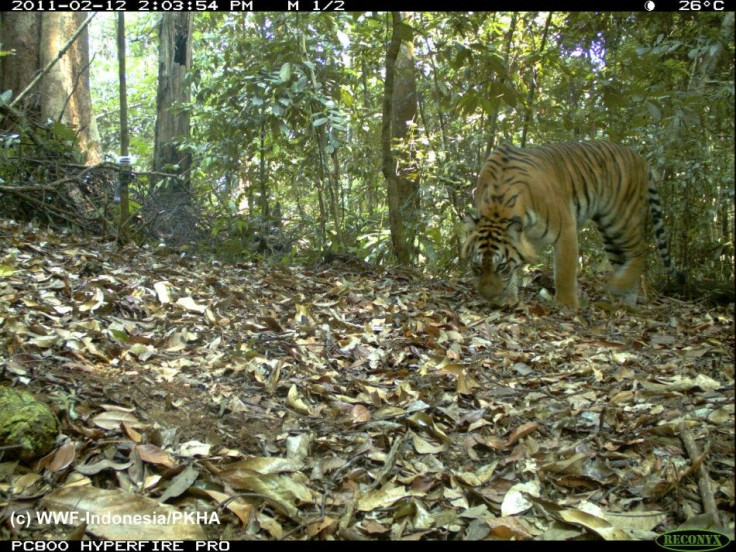Bless The Beasts: Indonesia Muslim Clerics Issue Fatwa To Protect Wildlife

In what is believed to be the first-ever ruling of its kind, the top Islamic authority in Indonesia has issued a fatwa, a legal opinion based on Muslim law, against the illegal hunting and trafficking of endangered wildlife in the Southeast Asian nation.
The Agence France-Presse news agency reported that the Indonesian Ulema Council condemned such activities as “unethical, immoral and sinful.”
National Geographic called the fatwa “unprecedented” and said it arrived during a period of soaring crime related to wildlife. Indonesia, a vast nation of archipelagos comprising some 17,500 islands and 250 million people, boasts a wide array of fauna and flora, much of which is under threat from habit loss from population growth and economic development. For example, the illegal clearing of forests to make room for palm oil plantations and other commercial enterprises has posed grave consequences for such critically endangered and iconic species as the orangutan, the Sumatran tiger and Sumatran elephant, AFP noted. Wild elephants have also been illegally hunted for their ivory tusks, which are usually sent to China where they have -- allegedly -- medicinal uses. Indonesia is also facing the over-exploitation of its marine resources from excessive fishing and the degradation of its ecosystem.
“All activities resulting in wildlife extinction without justifiable religious grounds or legal provisions are haram [forbidden]. These include illegal hunting and trading of endangered animals,” Asrorun Ni'am Sholeh, secretary of the Ulema Council's commission on fatwas, told AFP. “Whoever takes away a life, kills a generation. This is not restricted to humans, but also includes God's other living creatures, especially if they die in vain.”
The council’s fatwa urged the Jakarta government to supervise protection of the environment, review permits granted to companies that have been accused of hurting the environment, and to prosecute illegal loggers and wildlife traffickers. "This fatwa is issued to give an explanation, as well as guidance, to all Muslims in Indonesia on the sharia law perspective on issues related to animal conservation," said Hayu Prabowo, chair of the council's environment and natural resources body, according to National Geographic. "People can escape government regulation, but they cannot escape the word of God."
Under the laws of Indonesia, illegal wildlife trafficking can lead to five years in prison and a 100 million rupiah ($8,500) fine.
National Geographic explained that the fatwa was inspired by a trip taken by Muslim leaders of Sumatra that was organized by Indonesia's Universitas Nasional, WWF-Indonesia and the British-based Alliance of Religions and Conservation. The World Wildlife Fund praised the council’s decision. "It provides a spiritual aspect and raises moral awareness, which will help us in our work to protect and save the remaining wildlife in the country, such as the critically endangered tigers and rhinos,” said WWF’s Indonesia communications director, Nyoman Iswara Yoga.
Femke den Haas of the Jakarta Animal Aid Network (JAAN) said the fatwa came as a surprise, but she welcomed it. “It can’t do any harm. People often ignored government regulations, but for religious beliefs they do listen, so it could work,” she told the Jakarta Globe. “Religion has a very strong influence here, but sometimes because of religion people feel like they have the right to kill the animals even though the government says it is prohibited. No matter what your religion or background is, you should follow the national regulations. Killing endangered species is prohibited by the 1990 Natural Resources Conservation Law.”
An editorial in the Jakarta Globe also praised the fatwa. “Raising public awareness will go a long way in helping animals,” the paper wrote. “Respecting the habitat of endangered animals will also go a long way in allowing future generations to appreciate them and protect them where they naturally occur.”
However, AFP noted, despite the fact that Indonesia is the most populous Islamic nation on earth, it is unclear of the government will heed the warnings of the council and impose legislation to crack down on illegal wildlife hunting and trading. Typically, the state does not respond to fatwas issued by religious bodies. Sholeh himself admitted that the fatwa was not binding legally, but added that “it's a divine binding.” Nonetheless, an official at the Forestry Ministry told AFP that it will make a joint announcement with the Ulema Council on March 12, without elaborating further.
Moreover, this is not the first time a religious body has issued edicts against wildlife trafficking. In 2005, the Dalai Lama made a similar proclamation.
© Copyright IBTimes 2024. All rights reserved.





















